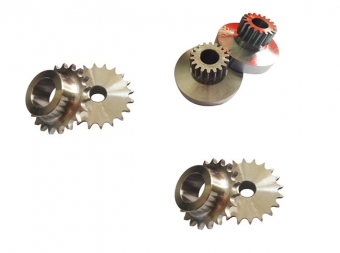


cnc mill for metal is a computer numerical control (CNC) machining process that uses rotating tools to remove material from a Platinum workpiece. The process is controlled by a computer program that uses precise measurements and instructions to achieve a high level of accuracy and repeatability.
The main advantage of cnc mill for metal technology is the ability to produce parts with high precision, consistency and tight tolerances. This is achieved through the use of advanced software that controls the movement of CNC machine tools, allowing complex cuts and shapes to be achieved with precision. In addition to precision, cnc mill for metal machines offer high levels of efficiency. By using computer programming, these machines can work continuously and quickly, reducing production time and costs. The versatility of cnc mill for metal technology allows for the machining of a variety of materials, including steel, aluminum, Platinum, brass and titanium. This makes it a valuable tool in industries such as aerospace, automotive and medical that often use different types of metals. Some key parameters to consider when using cnc mill for metal technology include the type of CNC machine being used, spindle speed, feed rate and depth of cut. These parameters can be adjusted and optimized to achieve the desired results, making it a highly customizable process.
| Material: |
Aluminum (6061-T6, 6063, 7075-T6,5052) etc... Brass/Copper/Bronze etc... Stainless Steel (302, 303, 304, 316, 420) etc... Steel (mild steel, Q235, 20#, 45#) etc... Plastic (ABS, Delrin, PP, PE, PC, Acrylic) etc... |
| Process: | CNC Machining, CNC turning, CNC milling, CNC lathe machining, CNC boring, CNC grinding, CNC drilling etc... |
| Surface treatment: |
Clear/color anodized; Hard anodized; Powder-coating; Sand-blasting; Painting; Nickel plating; Chrome plating; Zinc plating; Silver/gold plating; Black oxide coating, Polishing etc... |
|
Gerenal Tolerance: (+/-mm) |
CNC Machining: 0.005 Turning: 0.003 Grinding(Flatness/in2): 0.004 ID/OD Grinding: 0.001 Wire-Cutting: 0.003 |
| Certification: | ISO9001:2008, ROHS |
| Production capacity: | depend on complicacy of different products and the quantity |
| Experience: |
15 years of CNC machining products 3 years of automation machine manufacturing |
| Packaging : |
Standard: pearl cotton and bubble bag, carton box and seal For large and big quantity: pallet or as per customers' requirement |
| Lead time : | In general:7-12days |
| Term of Payment: | T/T, Paypal, Trade Assurance etc... |
| Minimum Order: | Comply with customer's demand |
| Delivery way: | Express(DHL,Fedex, UPS,TNT,EMS), By Sea, By air, or on your requirement |



cnc mill for metal FAQs Guide. we will delve into the specifics of cnc mill for metal machining and explore its advantages, applications, and key considerations for successful implementation. Whether you are new to the field or looking to expand your knowledge, this guide will provide a comprehensive overview of this revolutionary manufacturing process. So, let's begin our journey into the world of cnc mill for metal machining!
1.What is the role of chip control in cnc mill for metal machining?
As one of the top cnc mill for metal manufacturers in China, we take this very seriously. Chip control is an important part of metal CNC machining. It is the process of controlling the size, shape, and volume of chips produced during the machining process. This is done by controlling the cutting speed, feed rate, and depth of cut. Chip control helps to reduce tool wear, improve surface finish, and increase the life of the cutting tool. It also helps to reduce the amount of time and energy required to complete the machining process.
2.What is the role of coolant in reducing heat and friction during cnc mill for metal machining?
Our cnc mill for metal products undergo strict quality control to ensure customer satisfaction. Coolant plays an important role in reducing heat and friction during metal CNC machining. Coolant helps to reduce the temperature of the cutting tool and the workpiece, which helps to reduce the amount of heat generated during the machining process. Coolant also helps to reduce friction between the cutting tool and the workpiece, which helps to reduce wear and tear on the cutting tool and the workpiece. Additionally, coolant helps to flush away chips and debris from the cutting area, which helps to reduce the risk of clogging and jamming.
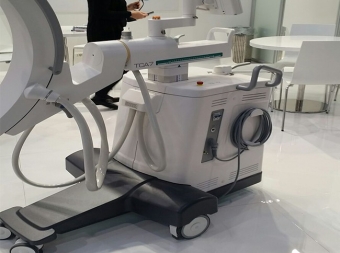
3.How does the cutting fluid affect the overall efficiency of cnc mill for metal machining?
Cutting fluids can have a significant impact on the overall efficiency of metal CNC machining. Cutting fluids can reduce friction between the cutting tool and the workpiece, which can reduce the amount of heat generated during the machining process. This can help to reduce tool wear and improve the surface finish of the machined part. Cutting fluids can also help to reduce the amount of time needed to complete a machining operation, as well as reduce the amount of energy needed to complete the operation. Finally, cutting fluids can help to reduce the amount of smoke and dust generated during the machining process, which can improve the working environment for the machinist.
4.How does the speed of the machine affect the production process?
We adhere to the principle of quality first and have a complete production quality management system and quality inspection process. The speed of the machine affects the production process by determining how quickly the production process can be completed. Faster machines can produce more products in a shorter amount of time, while slower machines will take longer to produce the same amount of products. Faster machines also allow for more efficient use of resources, as they can produce more products with fewer resources. Additionally, faster machines can reduce the amount of time needed for setup and changeover, which can help to reduce costs and improve efficiency.
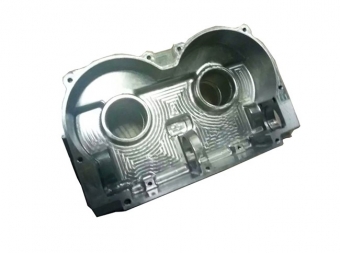
5.What is the role of CAM software in cnc mill for metal machining?
Our products & services cover a wide range of areas and meet the needs of different fields. CAM software is used to create the instructions for the CNC machine to follow when machining metal. It is used to create the toolpaths that the machine will use to cut the metal, as well as to set the speeds and feeds for the cutting tools. It also helps to optimize the machining process by ensuring that the cutting tools are used in the most efficient way possible.
6.What safety precautions should be taken when changing tools in a CNC machine
Our company has many years of cnc mill for metal experience and expertise. ? 1. Make sure the machine is powered off and the power cord is unplugged. 2. Wear protective gear such as safety glasses, gloves, and a face shield. 3. Secure the workpiece with clamps or other appropriate fixtures. 4. Disconnect any air lines or other connections to the machine. 5. Remove any loose tools or debris from the work area. 6. Make sure the tool holder is securely locked in place. 7. Use the appropriate wrench or other tool to loosen and remove the tool. 8. Inspect the tool for any damage or wear before installing it. 9. Make sure the tool is properly installed and securely tightened. 10. Reconnect any air lines or other connections to the machine. 11. Test the machine to make sure it is functioning properly.

7.Can cnc mill for metal machines produce high-quality surface finishes?
As one of the cnc mill for metal market leaders, we are known for innovation and reliability. Yes, metal CNC machines can produce high-quality surface finishes. CNC machines are capable of producing very precise and accurate parts with smooth surfaces. The quality of the surface finish depends on the type of tooling used, the speed and feed rate of the machine, and the type of material being machined.
8.About cnc mill for metal production capacity
Metal CNC production capacity is determined by the size and complexity of the parts being produced, the type of CNC machine being used, and the number of machines available. Generally, CNC machines are capable of producing parts with high accuracy and repeatability, and can produce parts with complex geometries. The production capacity of a CNC machine is determined by the number of axes it has, the speed of the spindle, and the size of the workpiece. The production capacity of a CNC machine can be increased by adding additional machines or by increasing the speed of the spindle.
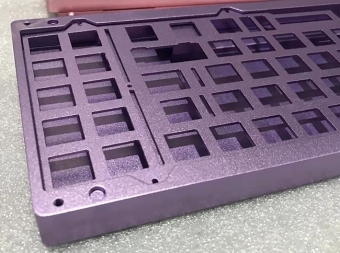
9.Can cnc mill for metal machines be used for engraving or marking?
We have established a good reputation and reliable partnerships within the cnc mill for metal industry. Yes, metal CNC machines can be used for engraving or marking. CNC machines are capable of producing intricate designs and patterns on metal surfaces, and can be used to engrave or mark logos, text, or other designs.
10.What are the safety considerations when operating a cnc mill for metal machine?
As one of the top cnc mill for metal manufacturers in China, we take this very seriously. 1. Wear appropriate safety gear, such as safety glasses, hearing protection, and a face shield. 2. Ensure that the machine is properly grounded and that all electrical components are in good working order. 3. Keep the work area clean and free of debris. 4. Make sure that all guards and shields are in place and functioning properly. 5. Keep hands and other body parts away from the cutting area. 6. Make sure that the cutting tools are sharp and in good condition. 7. Make sure that the cutting speed is appropriate for the material being cut. 8. Make sure that the cutting depth is appropriate for the material being cut. 9. Make sure that the cutting feed rate is appropriate for the material being cut. 10. Make sure that the cutting tool is properly secured in the spindle. 11. Make sure that the cutting tool is properly lubricated. 12. Make sure that the cutting tool is not overloaded. 13. Make sure that the cutting tool is not damaged or worn. 14. Make sure that the cutting tool is not overheating. 15. Make sure that the cutting tool is not vibrating excessively. 16. Make sure that the cutting tool is not clogged with chips or debris. 17. Make sure that the cutting tool is not being used for a purpose for which it was not designed. 18. Make sure that the cutting tool is not being used in an environment for which it was not designed. 19. Make sure that the cutting tool is not being used in a manner for which it was not designed. 20. Make sure that the cutting tool is not being used in a manner that could cause injury or damage to the machine or the operator.
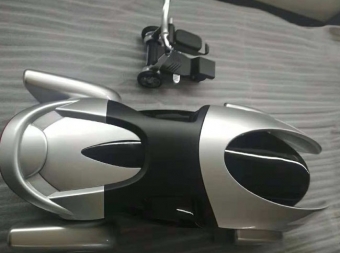
11.How does the precision of a cnc mill for metal machine compare to manual machining?
Being one of the top cnc mill for metal manufacturers in China, We attach great importance to this detail. The precision of a metal CNC machine is much higher than manual machining. CNC machines are able to produce parts with extremely tight tolerances and repeatable accuracy. Manual machining is limited by the skill of the machinist and the tools available. CNC machines are also able to produce parts with complex geometries that would be difficult or impossible to produce with manual machining.
12.What are the factors to consider when choosing the right spindle speed for cnc mill for metal machining?
1. Material: The type of material being machined will determine the optimal spindle speed. Harder materials require slower speeds, while softer materials can be machined at higher speeds. 2. Tooling: The type of tooling being used will also affect the spindle speed. For example, a high-speed steel tool will require a higher spindle speed than a carbide tool. 3. Feed Rate: The feed rate of the tool will also affect the spindle speed. A higher feed rate will require a higher spindle speed. 4. Depth of Cut: The depth of cut will also affect the spindle speed. Deeper cuts require slower speeds, while shallow cuts can be machined at higher speeds. 5. Machine Capacity: The capacity of the machine will also affect the spindle speed. Machines with higher capacities can handle higher spindle speeds.
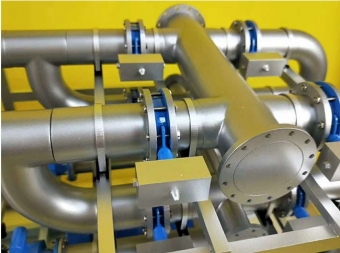
13.About the development history of cnc mill for metal factory
Metal CNC factories have been around since the early 1950s. The first CNC machines were developed in the United States by John T. Parsons and John H. Parsons. These machines were used to produce precision parts for the aerospace industry. In the 1960s, CNC machines began to be used in the automotive industry, and by the 1970s, CNC machines were being used in a variety of industries. Today, CNC machines are used in a wide range of industries, from aerospace to medical to automotive. CNC machines are used to produce parts with high precision and accuracy, and they are used in a variety of applications, from prototyping to production.
14.What is the role of CAD software in cnc mill for metal machining?
cnc mill for metal is not a product only, but also can help you comes to money-making. CAD software is used to create 3D models of the parts that need to be machined. The CAD software is then used to generate the CNC code that will be used to control the CNC machine. The CNC code contains instructions for the machine to move the cutting tool around the part in order to create the desired shape. The CAD software also allows the user to simulate the machining process, which helps to ensure that the part will be machined correctly.
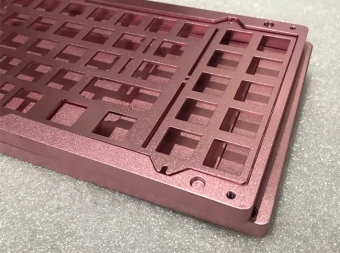
15.Is it possible to perform multiple operations on a single piece using cnc mill for metal machining?
Yes, it is possible to perform multiple operations on a single piece using metal CNC machining. Depending on the complexity of the part, multiple operations such as drilling, milling, turning, and tapping can be performed on a single piece.
16.How does the rigidity of the workpiece affect the accuracy of cnc mill for metal machining?
The rigidity of the workpiece affects the accuracy of metal CNC machining because it affects the stability of the cutting process. If the workpiece is not rigid enough, it can cause vibrations during the cutting process, which can lead to inaccuracies in the finished product. Additionally, if the workpiece is too rigid, it can cause excessive tool wear and reduce the accuracy of the machining process.
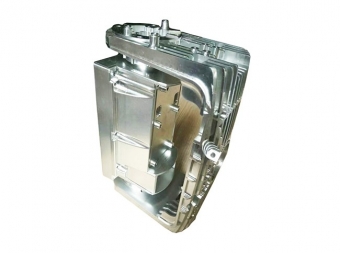
17.About cnc mill for metal R&D capabilities
Metal CNC R&D capabilities are the ability to design and develop custom CNC machined parts and components from a variety of metals. This includes the ability to create complex shapes and features, as well as the ability to work with a variety of materials, such as aluminum, steel, brass, and titanium. CNC R&D capabilities also include the ability to create custom tooling and fixtures, as well as the ability to program and operate CNC machines. Additionally, CNC R&D capabilities include the ability to troubleshoot and repair CNC machines, as well as the ability to design and develop custom software for CNC machines.
18.How does the cost of cnc mill for metal machining compare to traditional machining methods?
We operate our cnc mill for metal business with integrity and honesty. The cost of metal CNC machining is typically higher than traditional machining methods due to the complexity of the process and the need for specialized equipment. CNC machining also requires more time and labor to complete a job, which can add to the cost. However, CNC machining can produce more precise and accurate parts than traditional machining methods, which can offset the higher cost.
